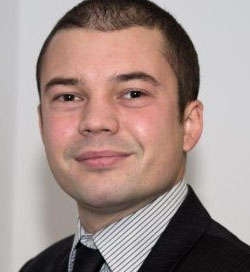Do keep a thesaurus, but in the shed at the back of your garden or behind the fridge, somewhere that demands travel or effort,” once said Roddy Doyle, author of The Commitments, when asked how to avoid writer’s block. He’s not alone in this kind of thinking, as over the centuries many authors and artists have claimed that moving the body helps to overcome mental block and aid inspiration. Now researchers from the Netherlands have found regular exercise does indeed help promote creativity.
Thinking tasks
The research – which was led by Lorenzo Colzato, a cognitive psychologist at Leiden University in the Netherlands – specifically looked at the impact physical activity had on the two main ingredients of creativity: divergent and convergent thinking. Divergent thinking involves thinking up as many solutions as possible for a certain problem. Convergent thinking leads to one single correct solution for a given problem.
Ninety-six male and female adults aged around 20–21 years were recruited for the research. Half of them were athletes who’d exercised at least three times a week over the past two years, while the other half had led sedentary lives.
In the divergent thinking assignment, participants listed as many possible uses for six common household items, such as a pen, towel or bottle.
In the convergent thinking assignment, participants were presented with three unrelated words such as ‘time’, ‘hair’ and ‘stretch’. They were then asked to find a common associate – which in this example was the word ‘long’.
Each task was undertaken three times by both groups. First, the tasks were carried out while participants sat on a static bike but, for control purposes, did not exercise. Following that, the tasks were completed while participants cycled at a moderate speed, and then while they cycled at an intense pace.
Creative spark
The athletes performed better overall in the tasks, implying that exercise boosts creativity. However, it was also suggested that the fitness of the individual could have an impact, as well as the immediate exercise being carried out.
Non-athletes’ performance was significantly impaired when they exercised, and they performed worst in the task where they had to exercise the most. Meanwhile, athletes performed slightly better in the convergent thinking test when they exercised, specifically when they cycled the hardest. Further research is needed to look at why this is the case, but the scientists speculate that there could be a number of causes.
Colzato says: “We think physical movement is good for the ability to think flexibly, but only if the body is used to being active. Otherwise, a large part of the energy intended for creative thinking goes to the movement itself.”
For the athletes, the actual act of exercise was automatic, so they had more capacity for thinking while they worked out. In addition, the scientists believe aerobic fitness training might enhance cognitive-control processes and the tasks relying on them. They suggest that “it’s not unreasonable to suspect that even more active individuals would show reliable benefits in tasks relying on convergent thinking”.
*Colzato, LS et al. The Impact of Physical Exercise on Convergent and Divergent Thinking. Frontiers in Human Neuroscience. December 2013























































